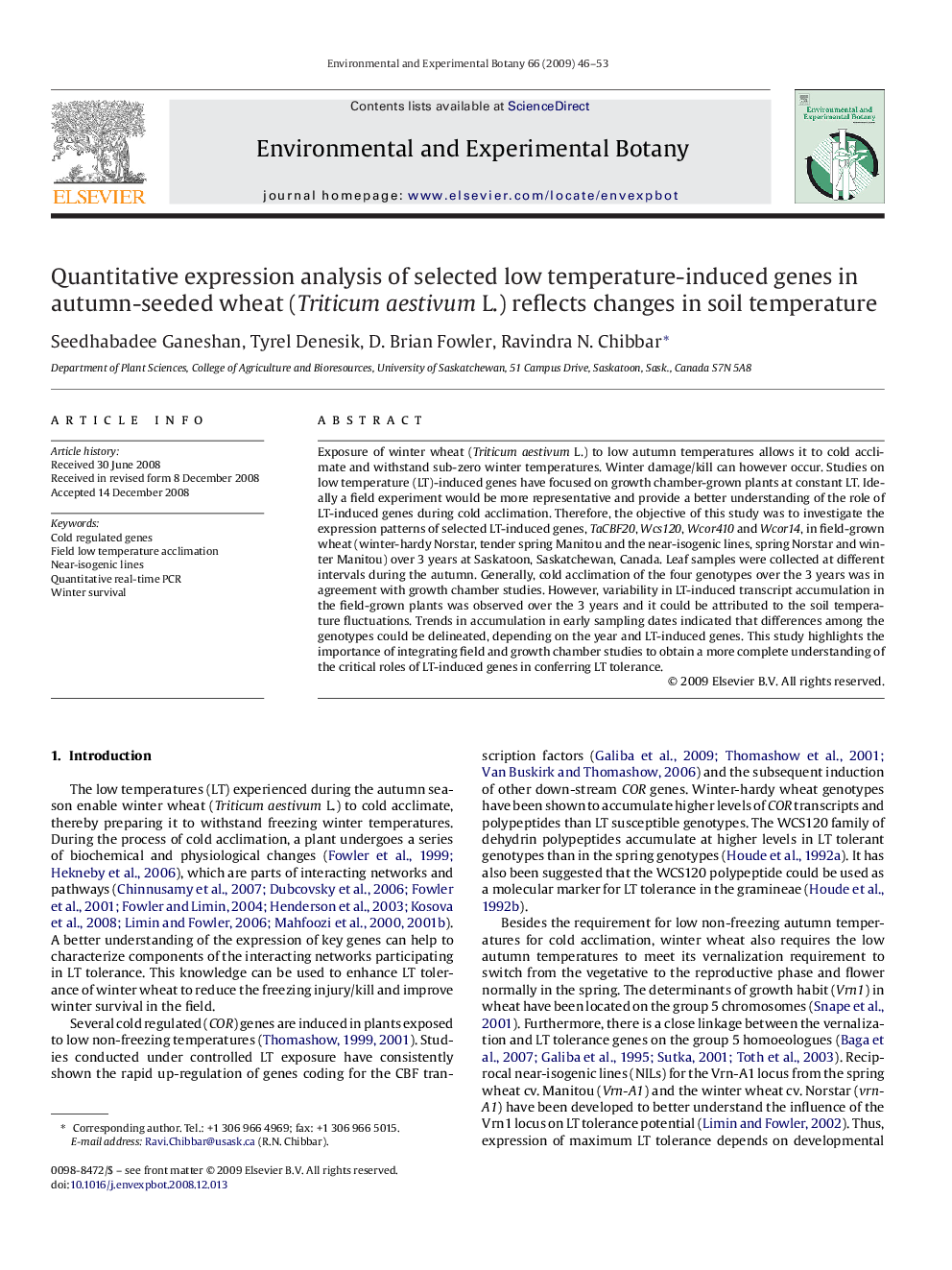| Article ID | Journal | Published Year | Pages | File Type |
|---|---|---|---|---|
| 4555074 | Environmental and Experimental Botany | 2009 | 8 Pages |
Exposure of winter wheat (Triticum aestivum L.) to low autumn temperatures allows it to cold acclimate and withstand sub-zero winter temperatures. Winter damage/kill can however occur. Studies on low temperature (LT)-induced genes have focused on growth chamber-grown plants at constant LT. Ideally a field experiment would be more representative and provide a better understanding of the role of LT-induced genes during cold acclimation. Therefore, the objective of this study was to investigate the expression patterns of selected LT-induced genes, TaCBF20, Wcs120, Wcor410 and Wcor14, in field-grown wheat (winter-hardy Norstar, tender spring Manitou and the near-isogenic lines, spring Norstar and winter Manitou) over 3 years at Saskatoon, Saskatchewan, Canada. Leaf samples were collected at different intervals during the autumn. Generally, cold acclimation of the four genotypes over the 3 years was in agreement with growth chamber studies. However, variability in LT-induced transcript accumulation in the field-grown plants was observed over the 3 years and it could be attributed to the soil temperature fluctuations. Trends in accumulation in early sampling dates indicated that differences among the genotypes could be delineated, depending on the year and LT-induced genes. This study highlights the importance of integrating field and growth chamber studies to obtain a more complete understanding of the critical roles of LT-induced genes in conferring LT tolerance.
